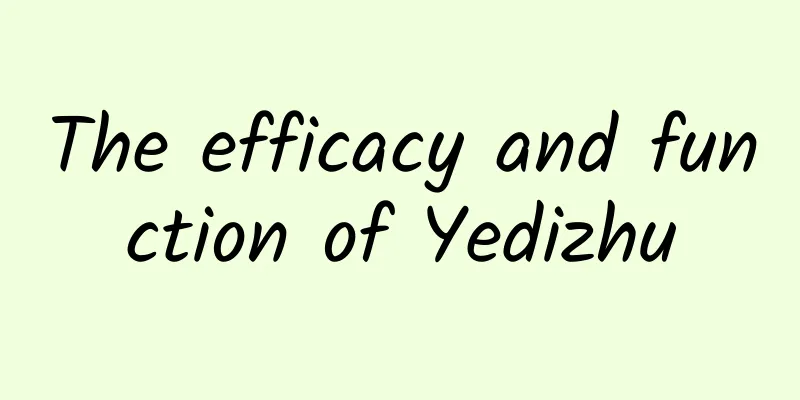The thing that women love most actually grows next to the grave

|
Every herb has its own unique growing environment, just like every person, each person has his own unique growing environment. However, among the many herbs, some grow on high slopes, some grow in low-lying places, some grow beside streams, some grow beside ditches, some grow in deep mountains, some grow in the sea, some grow on vines, and some grow in caves, but there is one herb whose growth characteristics are quite extraordinary. It grows wild in cemeteries and wastelands. Therefore, this grass got the name "Mutouhui". However, the name Mutouhui is not only derived from the fact that this wild grass is common in cemeteries and wastelands, but more importantly, it has a rather strange story behind it. According to legend, a long time ago, there was a woman who suffered from metrorrhagia and vaginal bleeding, which led to shock. Her family thought she had died of illness, so they put her in a coffin and asked several strong young men to carry her to the cemetery for burial. When they were almost at the cemetery, a man who had lost his way while collecting herbs came to ask for directions. When he asked, he saw blood still flowing under the coffin, so he asked what disease the person in the coffin had died of. When the male owner heard someone asking about this, he was heartbroken and cried even harder, saying that this was his wife who had died of a menorrhagia and bleeding. The herbalist said that if it was metrorrhagia, judging from the blood flowing out of the coffin, the patient could still be saved. When the man heard the news, he was shocked at first, then stunned, and said in a tone that was neither angry nor angry, "Who are you to speak so nonsense? My wife is already dead, why should she be punished by having her coffin opened and punished again?" When they learned that the herbalist in front of them was Li Shizhen, they were dumbfounded. It turns out that the person in front of me is the famous "Medicine Bodhisattva", so there should be no problem. Li Shizhen saw a kind of wild grass growing not far from the cemetery. According to Li Shizhen's observation, this was a medicinal herb that could treat metrorrhagia. So he picked the wild grass, mashed it to extract the juice, mixed it with a little urine of a child, and fed it to the woman in the coffin. In less than an hour, the woman slowly regained consciousness, and her metrorrhagia was mostly gone. Everyone was amazed at the magic of this herb and asked what it was called. Li Shizhen thought that the weeds were found in a cemetery, and he pulled the patient who was carried to the cemetery back from the head of the grave, so the three words "grave head back" came out of his mouth. Of course, this is just a story, but it is indeed recorded in "Compendium of Materia Medica" that the prescription of Mutouhui for treating metrorrhagia and leucorrhea is roughly to use a handful of Mutouhui, half a cup of wine and water, half a cup of urine from a child, and a pinch of new safflower, and take it warm before going to bed. From the perspective of herbal medicine, Mutouhui, which is also known as stinky heels, ground flower vegetable, tomb ash, arrow wind, wind-chasing arrow, foot sweat grass, and pendulum grass, is a perennial herb of the genus Mutou in the family Patrinaceae. It has a strong effect in stopping bleeding. For example, for the treatment of dysentery, 15g of Mutouhui and 30g of Portulaca oleracea can be decocted in water; for the treatment of urinary tract infection, repeated failure to heal, accompanied by frequent urination, urgency, and sometimes pyuria, 30g each of Mutouhui and Honeysuckle, 15g each of Pyrola and Smilax glabra can be decocted in water; for the treatment of bloody stool, fresh blood in the stool, and no hemorrhoids, 30g of Mutouhui, 10g of Sanguisorba officinalis charcoal, and 10g of processed rhubarb can be decocted in water; for the treatment of metrorrhagia, 45g of Mutouhui and 9g of Rubia cordifolia can be decocted in water; for the treatment of leucorrhea with blood, 30g each of Mutouhui and Shijianchuan can be decocted in water and taken in 3 times; for the treatment of women's excessive menstruation, each menstruation is like metrorrhagia, and the syndrome is blood heat, 30g each of Mutouhui and Herba Agrimoniae, 1g of Buffalo Horn Slices (decocted first), Huarui Stone, and 10g each of Donkey-hide Gelatin can be used, and 3 to 5 doses can be taken before menstruation every month. Mutouhui can also relieve pain. For example, for dysmenorrhea, you can use 15g of Mutouhui, 15g of Cyperus rotundus, 15g of Corydalis yanhusuo, and 30g of rice wine, decocted in water; for rheumatic bone pain, you can use 9g of Mutouhui, decocted in water, and use an appropriate amount of hot decoction to fumigate the affected area. Mutouhui can also treat many gynecological diseases. For example, to treat leucorrhea caused by damp heat, you can use 15 grams of Mutouhui and 1.5 grams of safflower, decocted in water; for example, to treat trichomoniasis vaginitis, you can use 60 grams of Mutouhui, 9 grams of Angelica dahurica, and an appropriate amount of Ligusticum chuanxiong, decocted in water for external washing; for example, to treat cervical erosion and pelvic inflammatory disease, with red and white leucorrhea, low back soreness and fatigue as the main symptoms, you can use 30 grams each of Mutouhui and Chuanpiscens, 30 grams of Houttuynia cordata, 15 grams each of Dipsacus asper, Eucommia ulmoides, and Hibiscus sabdariffa, and 5 grams of licorice, decocted in water; for example, to treat cervical cancer, you can use 9 grams each of Mutouhui, Cortex Moutan, Phellodendron chinense, and Flocculus aconitifolia, 6 grams of Gentiana scabra, 15 grams of Smilax glabra, 30 grams each of Shuyangquan, Scutellaria barbata, and Houttuynia cordata, decocted in water 3 times and taken. On the whole, the herb Mutouhui can be regarded as a good gynecological medicine. Although the name is a bit unpleasant, its unique effect is also unique. As the saying goes, a hero is not judged by his origin. Such good Chinese herbal medicine should be promoted and used more widely in clinical practice so that it can bring more benefits to human health. |
<<: It "broke up" Xiaolongnu and Yang Guo, and you may have it at home
Recommend
The benefits of drinking Morinda officinalis soaked in water
Morinda officinalis is a common Chinese medicinal...
Unfettered space exploration may be threatening the future of “space security”
【Mobile software: Bo Ke Yuan】As countries and pri...
Can myopia be controlled while sleeping? Are the "myopia magic tool" OK glasses really OK?
“Can orthokeratology lenses really delay the prog...
What Chinese medicine can replenish qi and blood?
Women over 30 feel that their complexion is getti...
@All college entrance examination candidates, please keep this "Post-Exam Anti-Fraud Guide"
Recently, college entrance examination results ha...
Hu Q & A丨“No, I’m really in Mercury retrograde!”
This episode's small theater director: Yang T...
Q&A | Too much water can put out a fire, but can a big fire ignite the water?
Loading long image... Source: Institute of Physic...
Can Suoyang Gujing Pills cure premature ejaculation?
We all know that once a man has problems with his...
The efficacy and function of papaya[picture]
There are many types of Chinese medicine. When we...
The efficacy and function of Nan wood
Chinese medicinal materials are very common, and ...
Who is Snow Lotus suitable for?
I believe everyone has heard of snow lotus in dai...
The efficacy and function of wax tree
As a traditional Chinese medicine, the medicinal ...
What to stew with seahorse
What is the best soup with Fumeilai? Fumeilai is ...
Why do we use English instead of Chinese in programming? Will Chinese programming be possible in the future?
Author: Duan Yuechu Your browser does not support...
Effects and functions of hibiscus
Many people know that hibiscus has unique therape...









